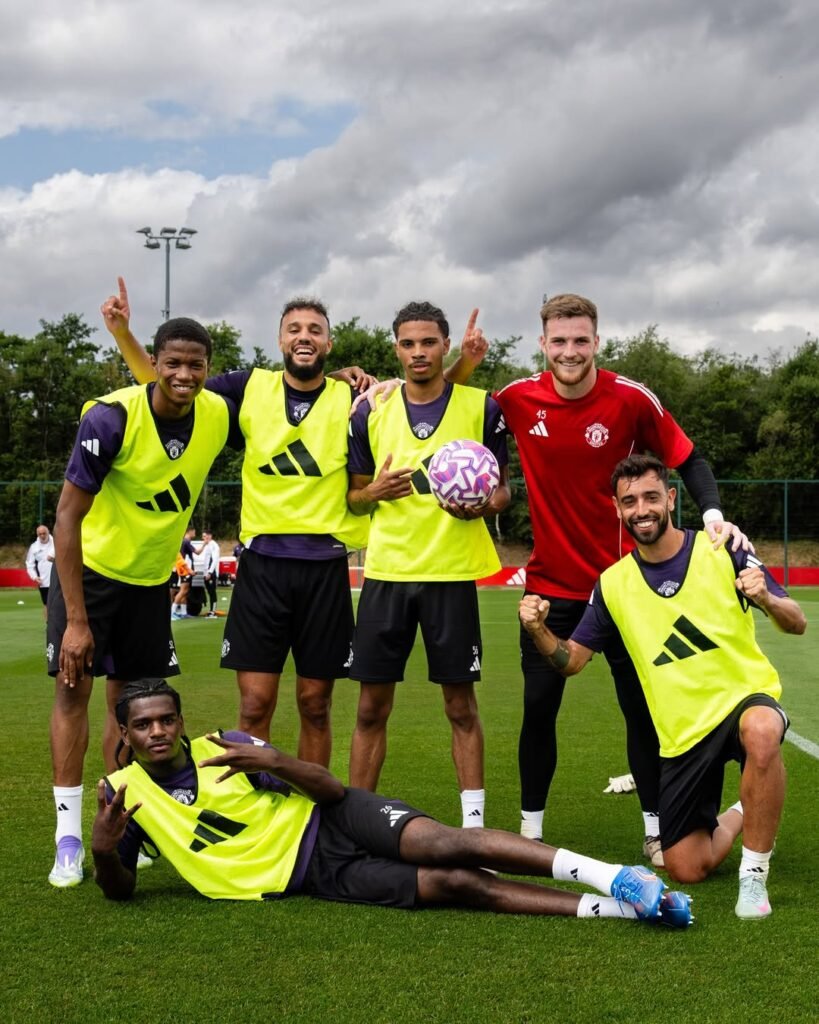The Premier League’s final fixtures always provide their fair share of tension. This year, the clash between Aston Villa and Manchester United at Old Trafford was headline news across the UK, and for good reason. Both teams entered the match under immense pressure. Villa had their eyes fixed on Champions League football, while United sought a positive end to what many considered a disappointing campaign.
A Season-Defining Encounter
Manchester United’s season has been rife with turbulence. While expectations ran high following major transfers, the club failed to find consistency, ultimately finishing 15th, their lowest in the Premier League era. In contrast, Aston Villa arrived revitalised under Unai Emery and with hopes of reaching Europe’s top tournament. The result would have significant consequences for both sides and for English football’s European landscape.
The Match Unfolds: Key Moments and Turning Points
The stakes played out on the pitch with drama from start to finish. Manchester United asserted early dominance, keeping Villa’s attack at bay and mounting several chances in the opening half hour. The home crowd at Old Trafford felt a mix of anticipation and anxiety, as United’s season had offered little to cheer about until this point.
Shortly before half time, the match reached a boiling point. Villa goalkeeper Emiliano Martinez was sent off after denying a clear goalscoring opportunity by bringing down Rasmus Højlund outside the box. The incident set tempers flaring and changed the entire dynamic. Despite being a man down, Villa still pushed forward, knowing European hopes hung in the balance.
The turning point came in the second half. Villa thought they had grabbed a vital goal when Morgan Rogers netted, putting the away fans into raptures. But celebrations were abruptly muted. Referee Thomas Bramall ruled Rogers had fouled United keeper Altay Bayindir before scoring. The decision, met with outrage by Villa players and coaches, became the match’s defining controversy and one of the season’s most debated VAR moments.
Almost immediately, United capitalised on Villa’s frustration. Amad Diallo headed the hosts into the lead in the 76th minute, and with Villa stretched, Christian Eriksen dispatched a penalty ten minutes later to seal victory for United. The result ended 2–0.
Controversy and Its Aftermath
The fallout from Bramall’s decision dominated post-match coverage in the UK. Villa manager Unai Emery publicly questioned the referee’s judgement, saying, “The TV is clear with the move but, of course, we have to accept it. It was a mistake. A big mistake”. Captain John McGinn called for rule changes to VAR, expressing frustration on behalf of players and fans.
Pundits on British television weighed in, with many suggesting Villa’s denied goal would spark further debate over officiating standards and the growing impact of video replay on crucial matches. The controversy overshadowed what might have been a well-earned point for Villa and left the club’s supporters wondering what might have been.

By the Numbers: Stats Tell the Story
United’s dominance showed in the match statistics. The hosts tallied 25 shots to Villa’s six. Bruno Fernandes led with five attempts, while Mason Mount put three shots on target. Villa, missing their numerical advantage, managed only a single shot on goal, with Matty Cash the closest to scoring. United also controlled tackles and set the pace with 20 to Villa’s nine.
Defensively, fouls were even at ten apiece, and yellow cards flew towards the end, with United and Villa’s players alike feeling the pressure. The data reflected a match of high intensity and fine margins, ultimately shaped by those critical refereeing moments.
Winners and Losers: What It Meant for Each Club
For Manchester United, victory was bittersweet. While they denied Villa a spot in the Champions League, the win could not mask deeper issues. Expert commentators from national outlets described the club’s season as one pointing toward “major changes and uncertainty.” Midfield talisman Bruno Fernandes admitted United’s standards had slipped and that restructuring may be required in the summer—echoing calls from fans and analysts alike.
Aston Villa, meanwhile, endured anguish as the final whistle confirmed their slip from Champions League qualification to Europa League participation. Despite their impressive form throughout the season, including a standout run in Europe, missing out at the last hurdle left a sting that will last through the summer. Still, optimism remains high around Emery’s leadership and the core squad, which many believe have another shot at Europe’s elite next year.
The Wider Picture: European Football and Premier League Implications
Villa’s defeat had knock-on effects for Newcastle United, who secured the final Champions League spot despite losing themselves on the day. The reshuffling of European places highlights the competitiveness of this year’s Premier League, where margins between elation and heartbreak have rarely been finer.
Supporters across the UK took to social media to voice frustration, debate decisions, and praise their teams. Despite VAR’s negatives, this season remains one of the league’s most watched and discussed, with drama like Villa vs United reminding fans why English football holds such sway nationwide.
Looking Ahead: Changes and Transfers
Questions linger over what comes next. At United, speculation about key player departures and the manager’s future continues to fill headlines. For Villa, attention turns to the transfer market, squad reinforcement, and the chance to turn disappointment into motivation for the coming season.
Both squads will need to recalibrate, but after such a tempestuous end to the season, supporters will be eager for next year’s encounters. These matches are rarely easy and never predictable, with every meeting stacked with history and intensity.
Conclusion:
Aston Villa’s dramatic loss against Manchester United encapsulated all the intrigue, controversy, and unpredictability of Premier League football. With statistics, emotion, and controversy combining, this fixture gave the UK footballing public a match to remember.
As the dust settles, both clubs will reflect and regroup. Next season’s encounters already hold added weight. Until then, the debate will carry on, ensuring that Aston Villa v Manchester United remains one of the league’s most compelling and talked-about rivalries.
Read More: Tim Metcalfe: Coronation Street’s UK Sensation

